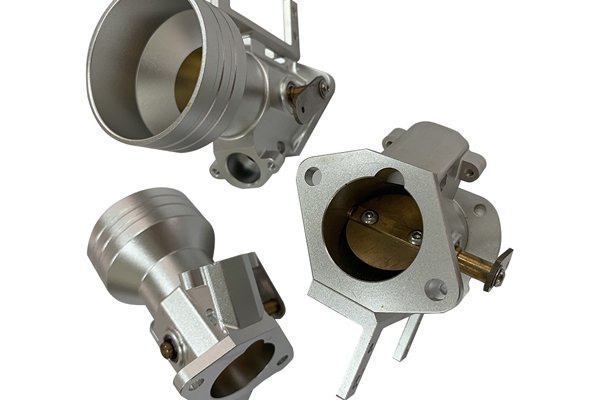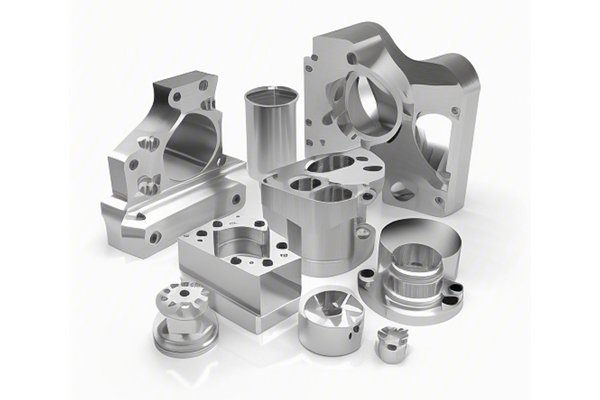Did you know that approximately 30% of all manufacturers globally are investing in advanced CNC (Computer Numerical Control) machining technologies? This statistic showcases the undeniable trend toward precision engineering and the growing reliance on custom CNC parts machining in various industrial applications. As industries continue to evolve, the demand for highly customized, precise, and durable parts has never been more critical.
As technology advances, the need for highly specialized, precise components in industrial applications becomes paramount. Whether in aerospace, automotive, electronics, or medical fields, custom CNC parts machining has become a go-to solution for achieving superior performance and efficiency. This blog will explore the benefits, applications, and mechanics of custom CNC parts machining services, providing a comprehensive understanding of why businesses should invest in these solutions.
CNC machining refers to the automated control of machining tools by means of a computer. Custom CNC parts machining is the process of creating specific components tailored to a client’s unique requirements. This technology utilizes various machining processes, including turning, milling, drilling, and grinding, enabling manufacturers to produce intricate and precise components.
1.1 CNC Machining Processes
1.2 Types of Materials Machined
Custom CNC parts can be manufactured from a wide variety of materials:
The benefits of custom CNC parts machining services are vast. Let’s dive into some of the key advantages that make this process a smart choice for manufacturers:
2.1 Precision and Accuracy
CNC machining offers extraordinary precision compared to traditional methods. Modern CNC machines can achieve tolerances of +/
2.2 Efficiency and Speed
Custom CNC machining is not just about precision; it’s also highly efficient. Machining processes can be automated, and multiple operations can be performed simultaneously, significantly reducing manufacturing time and costs.
2.3 Versatility
CNC machining can create a plethora of shapes and designs, accommodating various geometric forms. This versatility allows manufacturers to produce complex components, including intricate designs that were once impossible to create.
2.4 Cost-Effectiveness
While the initial setup costs for custom CNC machining can be high, the long-term benefits often outweigh these costs. By reducing waste and maximizing material usage, CNC machining can lead to cost savings over time.
2.5 Consistency and Quality
Once a CNC program is established, the process can consistently replicate products with the same quality and specifications. This uniformity is crucial for applications where parts must fit together flawlessly.
Custom CNC parts machining is utilized across various industries. Here’s an overview of some primary applications:
3.1 Aerospace
In aerospace, components must meet strict safety and performance standards. CNC machining is used to create high-precision components such as engine parts, brackets, and even custom fasteners.
3.2 Automotive
From prototype models to mass production of parts, the automotive industry relies heavily on custom CNC machining. Components like gears, shafts, and housings are often manufactured through this technology.
3.3 Medical
In the medical field, the requirement for precision is even more critical. Custom CNC machining produces surgical instruments, implants, and prosthetics, ensuring they meet medical regulations and patient requirements.
3.4 Electronics
Manufacturers of electronic devices use CNC machining for enclosures, heat sinks, and connectors. The high precision ensures that electronic components fit together seamlessly.
3.5 Industrial Equipment
Industrial manufacturing also benefits from custom CNC machining for producing tools, fixtures, and parts used in machinery.
To understand custom CNC machining services better, let’s break down the fundamental steps in this process:
4.1 Designing the Part

The journey begins with creating a CAD (Computer-Aided Design) model of the part. Designers use specialized software to visualize and simulate the component, ensuring that it meets specifications before production.
4.2 Preparing the Machine
Once the design is finalized, it is translated into a CNC-compatible code through CAM (Computer-Aided Manufacturing) software. The CNC machine then requires setup, specifying the material, tooling, and operational parameters.
4.3 Machining the Part
The CNC machine executes the program, automatically managing the machining processes. During this phase, operators regularly monitor the machine for quality control.
4.4 Finishing Touches
After the part is machined, secondary operations like deburring, polishing, and coating might be needed for enhancing the surface finish and performance of the component.
Testing and inspection occur during and after production, ensuring each component meets the required specifications and quality standards.
While custom CNC parts machining offers numerous benefits, there are challenges that manufacturers must address to ensure optimal results:
5.1 Initial Setup Costs
The expenses related to setting up CNC machines may be high. Businesses often need to invest in training and maintenance to ensure machines operate efficiently.
5.2 Material Limitations
Certain materials can pose challenges in CNC machining due to their hardness, brittleness, or other physical properties. It’s crucial to select appropriate materials based on their machinability.
5.3 Complexity of Designs
While CNC machining can handle complex geometries, intricate designs may require advanced machines and tooling, complicating production schedules and costs.
5.4 Skilled Labor Requirement
The need for skilled labor to program and operate CNC machines underscores the importance of training programs. This investment is essential to reap the benefits of advanced technology.
Businesses looking to leverage custom CNC machining services should consider the following factors:
6.1 Experience and Expertise
Choose a machining provider with a strong track record in your industry. Expertise in working with specific materials and components ensures reliable results.
6.2 Technological Capability
Evaluate the technologies and machinery available to the provider. Advanced CNC machines with heightened capabilities will deliver better results.
6.3 Quality Control Processes
Understand the quality control systems in place to ensure consistent and high-quality production.
6.4 Customer Support
A responsive vendor that offers excellent customer support will facilitate effective communication throughout the project and ensure any issues are resolved quickly.
Looking ahead, custom CNC machining is set to evolve alongside advancing technologies. Trends such as automation, Artificial Intelligence (AI), and the use of advanced materials are shaping the future landscape of machining services.
7.1 Automation
The incorporation of robots and automated systems will further streamline production, reducing costs and increasing efficiency.
7.2 AI Integration
Integrating AI into CNC programming can optimize machining processes, leading to improved accuracy and efficiency.
7.3 Advanced Materials
As new materials are developed, the capabilities of CNC machining will expand, enabling the production of even more complex and specialized components.
Custom CNC parts machining services play a crucial role in today’s industrial landscape. They offer significant advantages in terms of precision, efficiency, and versatility, helping businesses across various sectors achieve their production goals. Despite the challenges involved, the benefits far outweigh the initial investments.
Understanding the intricacies of custom CNC machining can help companies select the best practices to enhance their operations. Whether your focus is on aerospace, automotive, electronics, or healthcare, investing in custom CNC machining can lead to substantial improvements in product quality while providing a competitive edge.
As industries continue to embrace technological advancements, the importance of custom CNC parts machining will only grow. By adopting these services, businesses are not just keeping up with the times; they are paving the way for innovation and future growth. Remember, the right custom CNC machining service can set your business apart in this fast-paced, technology-driven world.
This blog explored the multifaceted benefits of custom CNC parts machining and its relevance across industries, providing insights into optimizing manufacturing processes for quality and precision. With the landscape of manufacturing continuously changing, the value of understanding and implementing custom CNC machining services will be paramount for future success.



